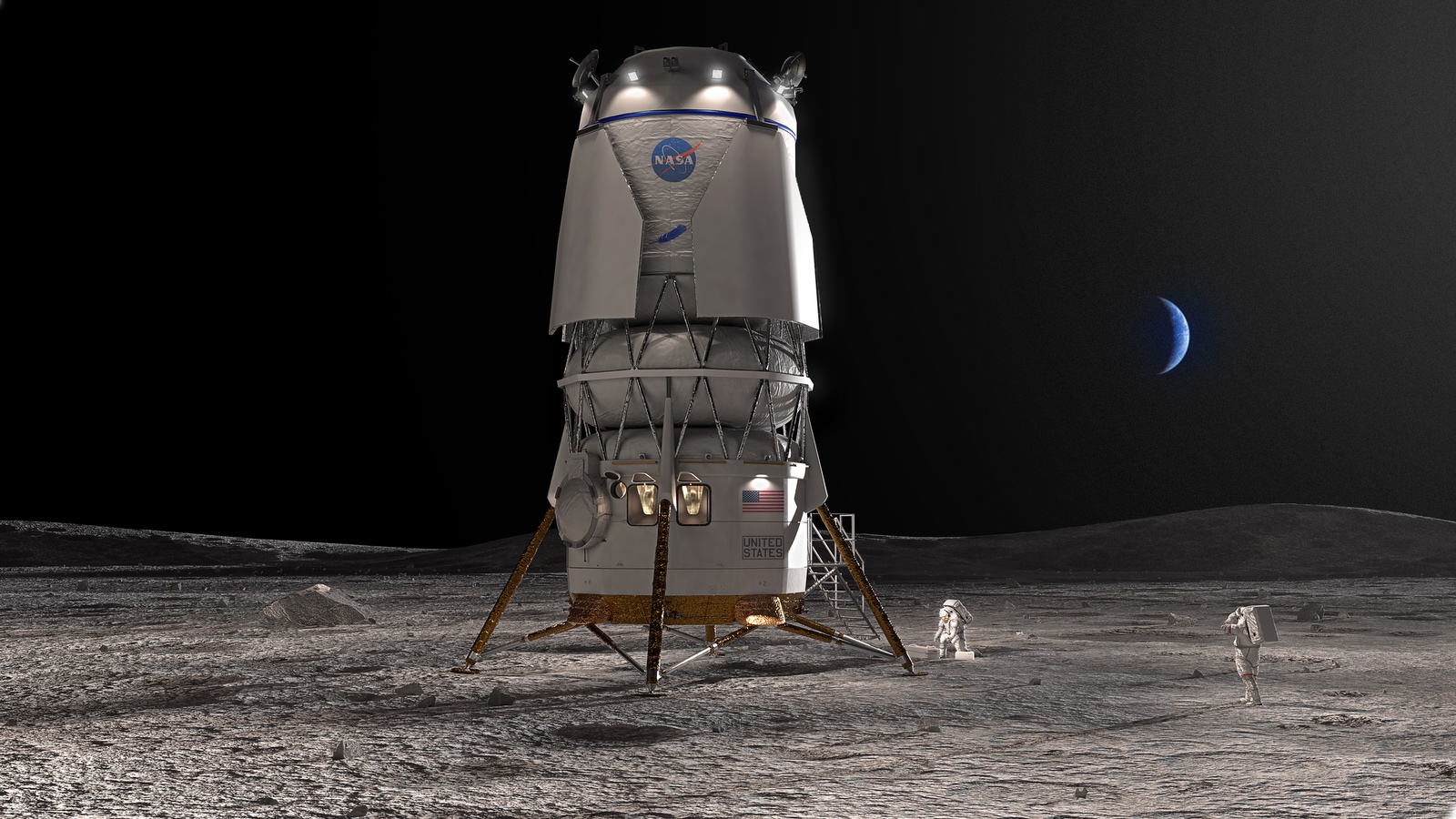When talking about spaceflight launch vehicles used by NASA, it is frequently pointed out how the older style “cost plus” contract model let vendors take advantage of US taxpayers by delivering subpar final solutions with astronomically high costs, all while guaranteeing a healthy profit for the vendor. Vendors deserve lots of the blame, but not all of it, and here we see why:
“We don’t have a lot of opportunities to force specific design changes beyond what they had originally proposed,” he said. “There are very few opportunities for us to essentially force them to provide the telemetry and instrumentation that we may want to have.”This NASA official wants something from the vendor that was not agreed to when the vendor and NASA signed the contract. He wants to force the vendor to do it anyway (implicitly also wants it for free). However, this isn’t a “cost plus” contract. Instead its a fixed service contract where the vendor will provide the outcome contracted (in this case landing astronauts on the moon), but the vendor has the freedom to design and deliver the method to reach that outcome themselves irrespective of NASA’s late add-on desires.
That was particularly true for the HLS contracts, he said, where cryogenic fluid management is a means to an end, transporting astronauts to and from the lunar surface using a services contract. “The service is to deliver crew to the moon. It’s not to deliver a cryogenic fluid management system that we can validate,” he said.We’ve seen vendors feet held to the fire to deliver on these fixed bid contract for spaceflight, and now we see how its keeping NASA from being a bad actor too.
I’d frame this discussion somewhat differently. Fixed-cost service contracts are really good when everyone involved knows what the hell they’re doing. When the contractor doesn’t know what they’re doing, they either inflate the bid or under-bid and lose money. When the government doesn’t know what it’s doing, it gives bad requirements and the result is either poor outcomes (spent the money, didn’t get what we needed) or shitloads of change orders (which is where cost-plus bites you anyways).
So - for fixed-price to work, it needs to be for a service both parties fully understand. Guess what? Nobody knows what the hell we’re doing with lunar travel. Not NASA, not the billionaire space enthusiasts, nobody. We’re making it up as we go along… and that’s okay unless we’re locked into contract mechanisms that make adjustment and collaboration difficult. Guess what? That’s exactly what we did.
Fixed-price is a different kind of “screwed” than cost-plus. It’s not less screwed…just different.
Let’s add this technology development piece to the story. Everyone doing space stuff needs CFM. In the old days, NASA would pay a lot of money to have a technology developed… but they’d own the rights and could license it or give it away. In the new world order, NASA is still paying (slightly less) for the technology to be developed… but the solutions may not be broadly useful to the rest of NASA’s goals… and nobody else gets the benefit of the technology. That’s called vendor lock, and vendor lock sucks in any situation.
So I dunno. It’s complicated, but it’s not the fault of the CFM engineers. NASA is indirectly throwing money at CFM, and they’re not getting good value for money in that investment. If you ask me, it’s the fault of the contracts folks for not thinking through these enormously obvious pitfalls and coming up with ways to manage them.
*Data rights limitations affecting
NASAtechnology developmentPrivatized knowledge is bottlenecking all technology.
The internet runs on open source software and it’s what powers modern world wide communications.
If we opened up more technology and technological knowledge this way … we’re be sending our first mission and human crew to Jupiter by now.
Instead we take up all our human knowledge, experience and ability to prop up a bunch of billionaire bank accounts.
We hold back our collective progress just to allow a few of us the privilege of being able to say that they are temporary masters of our little human universe.
Privatized knowledge is bottlenecking all technology.
Historically removal of all privatized knowledge removes the largest incentive to create new knowledge.
Nations with high intellectual property rights show the most advances. This is even with the benefit that low intellectual property respecting nations get immediately up-to-date knowledge when a high intellectual property nation releases it.
Some public and some private (for a time) knowledge has proven to yield the most technological advances. I’m a big believer in my tax money funding basic research (fundamental physics and biological research) while private industry selects from that to build on and develop new specific technologies which are private for a limited time.
Historically removal of all privatized knowledge removes the largest incentive to create new knowledge.
That doesn’t make sense … the Open Source Software movement is basically what started the technological explosion in the 70s and 80s and it was basically the basis of which Microsoft and Apple got their start … sure it was a tech people with day jobs and institutions with money that did it all but they did it mostly without an awareness of how to monetize it … and that period was also the basis of where Linux came out of which went on to build systems that power our modern internet. The majority of all that work was built by individuals who’s only incentive was to create new things and ideas … often without thinking about profit or income. The idea of profit usually came after the technology was established and people could better understand how to monetize, privatize and regulate it all for themselves.
I get it … we all need money to live … and we need to be rewarded for our work … but those needs shouldn’t be taken to such extremes as to lock away knowledge and monetize everything while slowing down progress that others could potentially create if they had access.
That doesn’t make sense … the Open Source Software movement is basically what started the technological explosion in the 70s and 80s and it was basically the basis of which Microsoft and Apple got their start …
You have a chunk of the history very wrong. You have a couple pieces of history that are close, but in the wrong order, and with attributing the impact of those events wrong.
Examples:
- Berkley Unix was originally and addon to the commercial software of Unix System V.
- RMS didn’t even create GNU until 1983 and that was barely the idea ad the time.
- The very first version of Linux wasn’t a thing until 1991, and it was NOT the useful OS you think of today.
- Slackware the first distro and was probably the beginning of what most people think of Linux and that was really only in 1993. It too was NOT what you think of Linux today.
- Microsoft got started making systems to control automobile traffic lights on Altair computers. Nothing to do with OSS. In fact, Microsoft’s BASIC they wrote for Altair was then pirated, and Bill Gates complained about that. Certainly not OSS. For the PC they licensed DOS from Xerox. Again, nothing to do with OSS.
You’re cherry picking any OSS notable events without attribution to all of the private work and commercial software that enabled it to occur.
I get it … we all need money to live … and we need to be rewarded for our work … but those needs shouldn’t be taken to such extremes as to lock away knowledge and monetize shouldn’t be taken to such extremes as to lock away knowledge and monetize everything
How much software will you write for free? How are you going to feed yourself and your family if all of your efforts are just given away?
while slowing down progress that others could potentially create if they had access.
Again, without the IP protections there aren’t the resources to write everything for free. Some? Certainly. There is some government and corporate support. I addressed that above. The big innovation is likely going to come from small or large groups doing the work to create the thing to personally benefit.
There are nations that do what you’re suggesting historically. Look at cold war era Russia and China. Software written was mostly done by the state. There wasn’t private enterprise doing it. What software innovations did you see coming out of those countries at the time?




